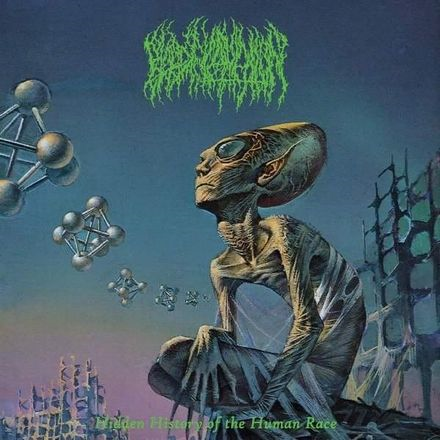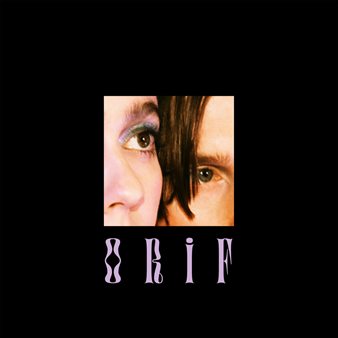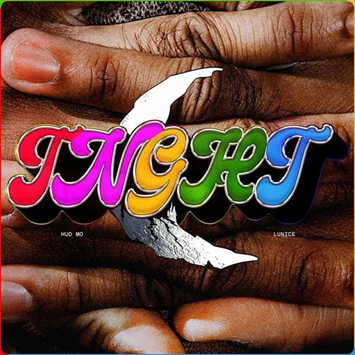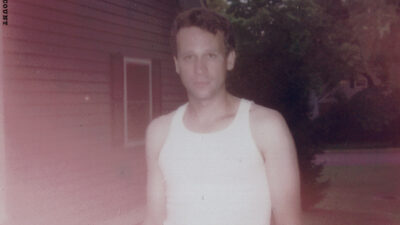We’re here to tell you what’s hot and what’s not on this week’s music roundup

Blood Incantation – HIDDEN HISTORY OF THE HUMAN RACE
Genre: Death Metal, Progressive Metal
Favorite Tracks: “The Giza Power Plant,” “Inner Paths (to Outer Space)”
My introduction to this Colorado metal quartet was that they were “death metal via Rush,” which piqued my interest given that a similar moniker was given to Coroner, one of my favorite bands who have been promising a new album for three years now to continual disappointment. Blood Incantation occupy a similar lane, swapping out a thrash metal base for death and high shrieking for low growling while piling on psychedelic tones and juxtapositions of blistering tremolo barrages and cathartic stillness. It’s a throwback to the time of Entombed and Death, but unlike someone like Black Breath, they are not content to merely replicate the tone of death metal’s golden age. Instead, they rely on impeccable technical chops and that aforementioned juxtaposition to deliver space-themed bombast that would be campy if it weren’t so well-performed. HIDDEN HISTORY OF THE HUMAN RACE understands how to build to a moment of Rush-like cosmic majesty that more than earns that lofty honor—the six-minute mark of “The Giza Power Plant” and the lumbering crawl off to a surging, maximal crescendo on the first half of “Inner Paths (to Outer Space)” need to be heard to be believed. Sadly, while the performances are massive and the guitars are just as versatile and crunchy as ever, the drums are much more poorly mixed and recorded than their debut, STARSPAWN. The snare pings and pops with unnatural loudness yet no punch like Metallica circa ST. ANGER, and the grinding, flat blast beats are used too much for any psychedelic atmosphere, especially on the opener “Slave Species of the Gods.” When the toms and cymbals are relied on more than the bass drum, it’s far more engrossing and rhythmically interesting. HIDDEN HISTORY OF THE HUMAN RACE brings little change to Blood Incantation’s formula, but said formula is certainly unique enough to justify refining their style rather than drastically evolving, so their twisty song-writing, celestial power, and good old-fashioned death metal crunch will more than tide me over for that new Coroner. [Blake Michelle]

Blue Hawaii – OPEN REDUCTION INTERNAL FIXATION
Genre: Ambient Pop, House
Favorite Tracks: N/A
Look, I’m mostly here to say that Blue Hawaii’s TENDERNESS is one of the best slices of electropop of the decade, the kind of viby, bubble-gummy jams that bougie boutique Los Angeles stores with pastel colors and minimalist layouts would be smart to toss on in the background—listen to “No One Like You” and try not to fall under its blissful spell. Unfortunately, the other reason I’m here is to alert you that their latest, OPEN REDUCTION INTERNAL FIXATION, offers none of the same highs, a general step back for the Canadian duo. The house beats on TENDERNESS were defined and amplified by how playful and jubilant they could be, while conversely opener “All The Things” is icy, the warmness melting away without ever evolving into the kind of coldhearted dance number that it clearly wants to be, its beats not hard or intentional enough and the production overly blasé. Things become more dour on “Still I Miss U,” which in its chorus begins to flirt with the intrinsic grooviness of Blue Hawaii’s previous work, but never quite musically seems up to the task, the minimalism again creating a void. The sax solo in “All That Blue” and the buzzing synths that stand out in “Trust” add a different degree of color to otherwise grey songs, but even those moments are buried amongst a sea of forgettable 4/4 time signatures. While certainly the group’s music throughout the decade has always erred more towards glitzier runway music than anything else, their best songs show an ability to elevate that model to an easy listening indie pop level, and unfortunately OPEN REDUCTION INTERNAL FIXATION is unnervingly sterile and far too bland to stand out. It’s an unfortunate move backwards for a group who had been trending in a more fun direction. [CJ Simonson]

Omar Souleyman – SHLON
Genre: Dabke
Favorite Tracks: “Shi Tridin,” “3tini 7obba,” “Layle,”
Having long toiled as a performer at weddings and events local to his native Syria, the Omar Souleyman mythos is one of perpetually bootlegged tapes and legendary live performances, many of which are only available in indiscriminate deep internet download files or YouTube rabbit holes. If you have yet to experience a Souleyman show, set your Bandsintown alerts now, but even as a fan, I can’t really say anything since the release of 2013’s WENU WENU, a sort of introductory rallying cry for Western audiences, has broken that much new ground. To be clear, Souleyman and longtime keyboardist Hasan Alo are clear proponents of the “If it ain’t broke, don’t fix it” ethos, and the duo are just as amiably consistent on SHLON as they were on BAHDENI NAMI and TO SYRIA, WITH LOVE before it, all glistening modal keyboard passages, high-fidelity production that dabbles in both four-on-the-floor techno and more traditional Arabic rhythms, and sonorous love poetry from Souleyman himself. As tends to be the case, things are a lot more footloose and fancy-free when the general energy is tangibly turned up, sending tracks such as “Shi Tridin” and “Layle” to enjoy the rarified air of “Wenu Wenu” and “Warni Warni” on the party playlist. But there’s a slightly more organic touch here courtesy of saz player Azad Salih that’s a far cry from the almost bedroom artist moxie of Souleyman’s earlier oeuvre, and just the slightest sense of a new trick presented via the beguiling and continually shifting rhythms of “Abou Zilif” to suggest that Souleyman can still be a vanguard of recontextualizing Middle Eastern dance styles with global techno sensibilities. To be clear, SHLON is good; but we already kind of knew it would be. Omar Souleyman will never be an artist we need to tell to shut up and play the hits, but that’s also because there isn’t much of a demonstrated desire to leave the comfortable pocket he’s been in for six years now. [Thomas Seraydarian]

TNGHT – II
Genre: Trap
Favorite Track: “Im In A Hole” “First Body”
On the second EP from the electro duo comprised of Hudson Mohawke and Lunice, TNGHT return to form with a few tricks up their sleeves. Whenever these two come together, historically it’s often filled in a cloud of chaos, but on II it just feels a bit crisper. This second EP is a much better and more cohesive work than the self-titled one they released in 2012, and even if no single song on this project can get to the level that songs like “Higher Ground” or “Goooo” reach, the lead, “First Body,” gets awfully close. A joyous and roaring return, “First Body” quite literally jumps out of the headphones and wraps you up in a delightful energy to lift you out of your metaphorical seat. It’s easy to see the chemistry that these two have together, each bringing an explosiveness of energy that the Soundcloud producers have been trying to emulate in their absence. A lot like the return of Jai Paul earlier this year, it’s hard to fake this kind of creative genius, and both Hudson Mohawke and Lunice continually go big on every track, making sure it’s loud and impactful, every second filled with as much substance as they can pack into it. “Dollaz” in particular feels like the two putting their foot to the gas and just letting it rev all the way up to infinity. It’s a head-bobber’s dream while also being an eclectic nightmare. Same can be said for, “Im In A Hole,” which could have been one of late-career Kanye West’s biggest hits if late-career Kanye didn’t find out about the MAGA/Megachurch money. It’s dark and cloudy yet gift-wrapped for late-night club atmosphere. The entire EP is ready for the club, although TNGHT’s entire discography is honestly the perfect gym playlist. It’s scattered with huge electro production where each song has a unique twist, which can’t really be said about the knockoff acts that have tried to follow in the same trap wave TNGHT started. Even if this EP doesn’t reach the heights of their debut, and undoubtedly won’t have the cultural impact, I know I definitely won’t ever argue with new music from the minds of TNGHT. [Mohammed Ashton Kader]















Comments